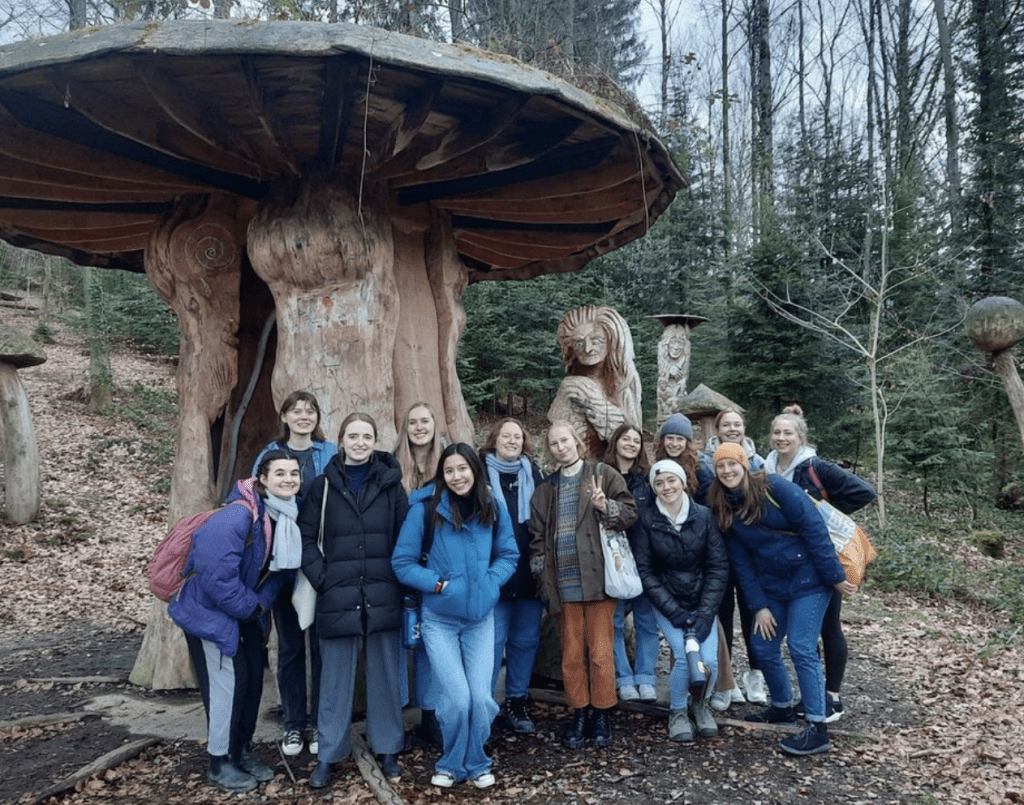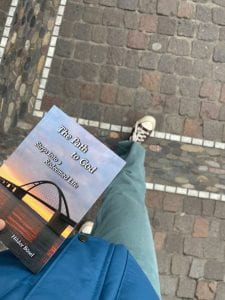Before reading this blog post, I ask that you take less than two minutes out of your day to listen to this audio excerpt from Brené Brown’s “Atlas of the Heart” now streaming on HBO Max:
I found this audio clip the way I find most inspirational quotes: aimlessly scrolling through Instagram reels. You cannot call yourself an ally of any marginalized group if you are not simultaneously listening to their experiences and believing that said experience is true. It is hard to be an ally. It is awkward and uncomfortable because, more often than not, confronting the ways in which we are privileged forces us to reevaluate the things we naturally feel entitled to.
____________________________________________________________________________________________________
Disclaimer: I’m not looking to compare privilege or label myself a victim of any sort, but to share my own experience here in Freiburg in the hopes of informing those who are similar to me that might choose this program (or this location) to study abroad.

____________________________________________________________________________________________________
Privilege is somewhat of a touchy subject these days. To have it is to be somewhat ashamed of it. Our generation is constantly comparing our trauma and struggles in order to be the most oppressed person in the room—or at least not the most privileged. I am the shameful product of comparatively very little struggle. I am privileged in my access to a quality education, medication, clean water, a therapist, etc. The list goes on in on. Never have I ever had any serious reason to be concerned about my freedom or the whereabouts of my next meal. I have always had a warm bed and supportive parents to return home to at the end of a long day. I can enjoying eating peanut butter without an EpiPen at hand. My privilege reflects itself in various different aspects of my life.
In many ways, I consider it to be a privilege to be a woman of color. I am proud to have a such a diverse ethnic background and family history. I have only very recently arrived at such a conclusion and let me just tell you it took a long time to get here.

I present to most of the world as asian. Occasionally, someone will tell me I look Native American. The other day a man on the tram asked me if I was from South America—that was a new one. We then proceeded to talk to me about subjects such as sake and Jackie Chan—neither of which I have any knowledge on. I have so many of these kinds of stories to tell since coming to Europe two months ago. Sometimes when I tell people that I am from the United States of America I get a funny look back. “You don’t look like an American.” That is a direct quote from a man I met on a bus in Budapest. All this to say, people here and elsewhere always seem to pick up on is the fact that I am not white. I don’t fault people for their stares. My racial composition is far more complex than history previously allowed for in most places. In addition to being Japanese, I am also a quarter pacific-islander (Chamorro) and a quarter white (Irish-German). These parts of my identity are not obvious so I often just omit them from the conversation. It complicates an already very complicated matter.

To be eastern asian in the United States is to be a model minority. That is to say, “a minority group or a member of such a group stereotypically viewed as being more successful than other such groups or individuals”. I have never really experienced any form of violent, overt racism and for that I am incredibly lucky. The Japanese have just as violent a history of colonization as any other major European country. It’s all about perspective. It is only when I stand next to my white friends that I feel considerably “dark”. When I stand next to my best friend, pictured on the right, I feel considerably white. However, people have often mistaken my best friend and I for sisters to the point where I have to wonder if some people really don’t see color.
Whitman College gave me my first taste of culture shock. Never had I ever felt so out of my element. I was not only unfamiliar with the culture of the mainland, but surprised to find that no one really looked like me. Whitman is largely very white. Europe, to no one’s surprise, is quite similar in this regard. To be asian in Europe as anything other than a tourist is to be somewhat of an anomaly—at least that is what it feels like sometimes. I know I look different. I know I sound different. I stand out in a way that can’t be categorized as quirky and cute. I had family members joke about how the ‘exoticism’ of my features would actually work to attract the male-gaze.
I think my white friends actually find these strangers and their questions to be far more intrusive than I do. I have to laugh in these kinds of situations. If people didn’t remind me that I looked different, I’d be at a dangerously high risk of forgetting it myself. I grew up surrounded by a lot of other asian people, not really thinking about race that critically because I was in the majority. Most of these people that approach me about my race are incredibly kind. It is somewhat of a privilege to grow up in a space where you are able to interact with people of different backgrounds and races. For this reason, my view of the United States has shifted a lot since coming here. Our country is not without its many flaws, but the diversity of our population is somewhat astonishing compared to other countries. The fact that Freiburg hosts one of the largest universities in Germany makes it a pretty young and diverse city.
My program, IES Freiburg: Environmental Studies and Sustainability, is composed almost entirely of white women. I am the only person of color here. There are four white men on this program and one non-binary person.

I have met and seen a good number of asians people here. The German intensive language course I took in my first three weeks here was actually full of asian people. It is always a comfort to see people that looked like you but I missed my friends from home.
I think we all know what it’s like to stand out in a crowd. It is never easy to move through a space in which you don’t feel you can talk about your experiences safely. Safety is found in being validated and understood. One can feel discriminated against as a white, straight man. However, one is more likely to feel discriminated against a transgender black man. There is a systematic difference between groups in terms of historical discrimination that cannot be ignored and must be prioritized in order to remedy those wrongs.
Song of the Week: Blur by Pleasure Systems
For more on privilege, check out the following Forbes article: “Privilege Is Not A Dirty Word”.


